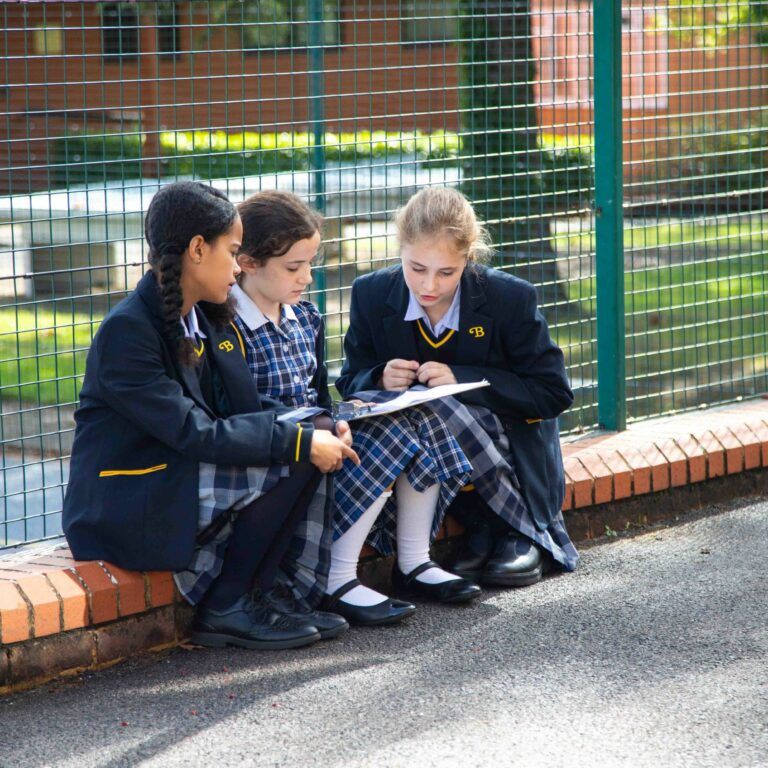High achiever, perfectionist, academic, all-rounder…
These labels are the sort of words girls (and boys) across the country might be hearing as praise from their parents, teachers, siblings and peers. Wonderful to hear, you might think, but actually many students perceive these words of intended praise as pressure to perform.
Sometimes during adolescence, girls will probably say that they are “stressed”. For some it will be a word they use fairly freely and in essence they may be stressed for a short period of time, but they will be able to manage this themselves. For others the internal feelings this word “stressed” brings to them might mean, anxiety, depression, and feelings of low self-worth, low self-esteem and low self-confidence and withdrawn from society which in turn might lead to unhealthy coping strategies such as self-harm, eating disorders, etc. Is it that nowadays there are more mental health issues around or that we are more open and frank and more able/equipped to talk about these issues?
Boys do experience some of these issues but the data is not so available for boys/men as there appears to be a stigma attached to the fact that as a man you do not talk about your feelings, and thus this has had a negative effect on the wellbeing of men, incredibly 74% of all suicides in 2014 where male.
Statistics are now worrying for children and young people; 1 in 4 people in the UK will experience a mental health problem each year. In respect of young people, 3 children in every classroom have a mental health disorder. So what’s to blame? There are many aspects of today’s society which can be “bad news” for children and young peoples’ mental health. They have to grow and develop in an ever-changing world; social media, living up to siblings/peers, conforming to what society expects, facing numerous challenges and pressures in their young lives. These can include family breakdown, money issues, sibling pressures, 24 hour social media interaction and access to the internet, body image concerns, bullying including cyber bullying, materialism and the need to “keep up with the Jones’” and sexual pressures, to name but just a few.
Social media is a real concern. The amount of time young people spend on social media; the “instant” reaction they can have to a comment, post, photograph, the content of what can be shared; the selfie craze and so on and the concern that they may be measuring themselves against how may ‘likes’ they are getting? Girls are under pressure from boys to sext; send pictures, the idea of ‘nudes for nudes’ – the boys send a topless picture and in turn the girls do. They want to be accepted by boys so then they fall into this snapchat hole; but, once it’s gone they can’t get it back. Their reputation damaged, their privacy violated, all for social acceptance?
It saddens me that children and young people are facing such difficult times ahead? What ever happened to the simple pleasures of just hanging out with friends without feeling like it was a competition? The other elements of this, though, is that Child and Mental Health Services are struggling to cope with the number of referrals; so where do we go from here? We need to teach children at a young age to try to cope with their pressures and equip them with emotional resilience in order to have the “bounce back” trait! Without sounding like the BT advert it really is “good to talk” and the more opportunity we give our young people to talk, give them the vocabulary to enable them to talk, to be emotionally literate to really explain how they feel and what lead them to feel that way, the more able they are to bounce back. Subjects such as PSHE can be the vehicle needed for us to get students to talk openly without the fear or shame of what’s happening to them or worrying about what are they are going through.
I wish I could get rid of the stigma which goes with mental health disorders, and strive for equality with regards for young people’s wellbeing. We almost need to “Go Crazy” for mental health as this is something which we, in schools, will continue to experience. There is a significant shift and change in this area.
At Burgess Hill Girls, we are committed to supporting both the girls and their families. This is a real team approach. If parents find themselves in a position where their daughter is struggling with a mental health issue we all work in partnership, in order to offer and source the best help possible. We have strong links with Beacon House in Haywards Heath and have also had a whole school wellbeing day to kick off this academic year. Our regular parenting seminars enabling and giving parents the tools in order to support their daughter’s emotional wellbeing. We all work together.
By Miss Nicola Donson, Assistant Head


